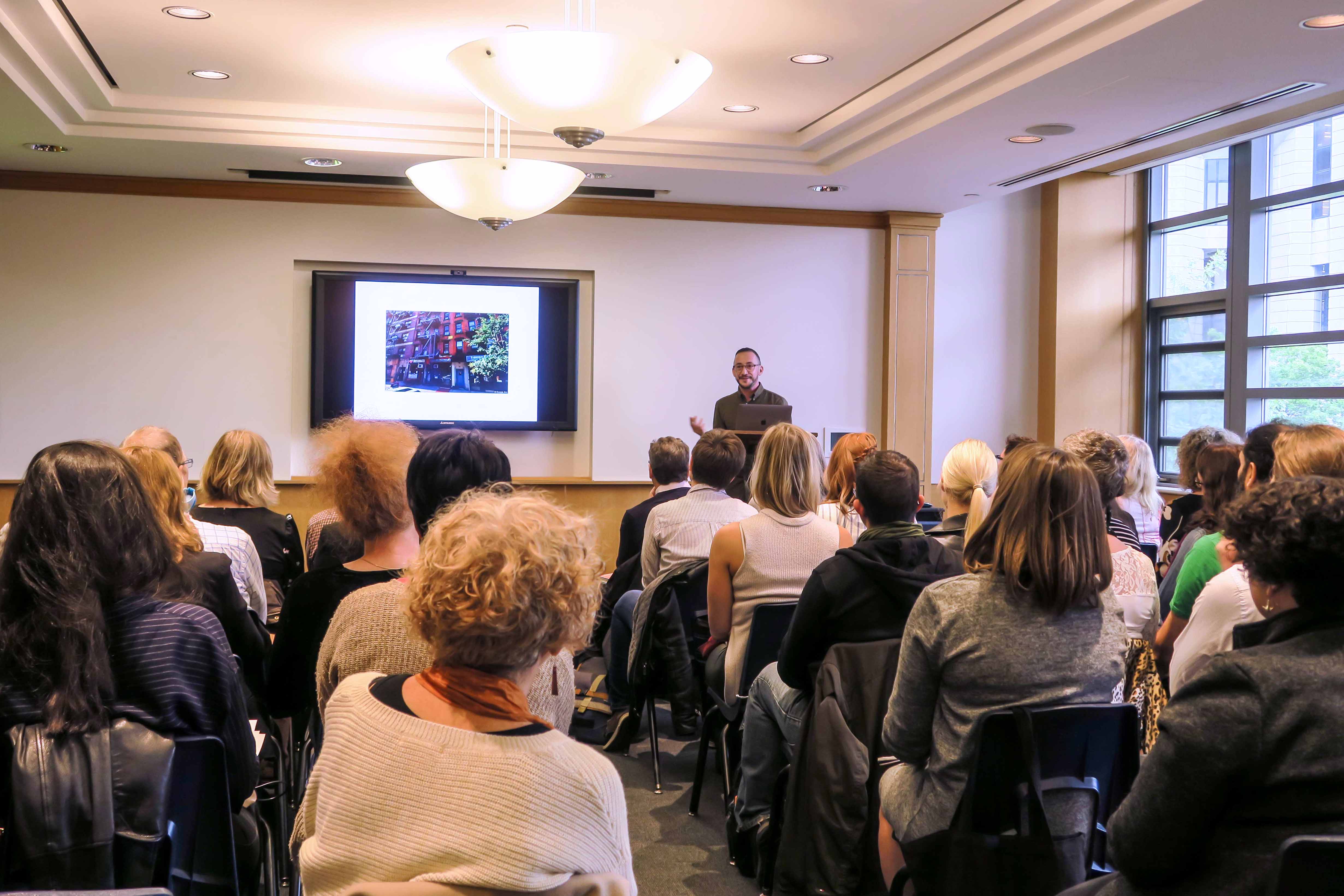What makes a man?
Thomas McBee’s latest book, “Amateur: A True Story About What Makes a Man,” is more than a personal narrative about McBee’s experience in the boxing world as a transgender man. McBee uses the boxing ring as a powerful framework to explore the broader dynamics of masculinity and the weight of male violence.
During our event on October 3, McBee challenged the audience to think beyond “real” men vs. “fake” men, and thus the characteristics traditionally attributed to men–including aggression and violence.
He offered five takeaways to help us expand our own understanding of masculinity:
- Everybody has a gender–Know that you have a gender, and ask questions about how gender operates in your life. Do you feel a dissonance between your own gender and your values?
- Aggression isn’t innate–Recent research has shown that testosterone may make men status-seeking, but not necessarily aggressive. Hold other men accountable, and do not excuse their behaviour. As a society, we need to let go of the idea of “good men” and “bad men” because it’s a false binary.
- Boys are systemically socialized out of empathy–Focus on being human; intimacy, asking for help, emotional intelligence, etc., these qualities can be recovered for boys and men if we all work to give status to them.
- I’m sexist and so are you–Notice how your behaviours may be sexist. Keep a diary at work in order to understand what you are doing to maintain the status quo. Ask for help from your female colleagues in order to get feedback. If you are the boss, let everyone else speak first in order to include all of the voices in the room.
- There are no real men–Masculinity is not a monolith. Work to enlarge your norms of masculinity.
Watch the videos below to hear more of Thomas McBee’s discussion.
“For somebody to be ‘real,’ somebody else has to be ‘fake’…Saying that there aren’t ‘real’ men, means in part saying that we have to stop judging masculinity by its performance in this particular way.”
McBee ended the discussion by reminding us that moving beyond the traditional perceptions of masculinity, and expanding gender beyond the binary, is a difficult but necessary task that we all play a part in.











